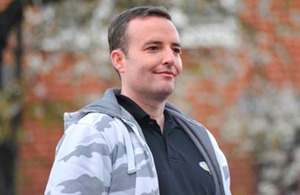

Well, you can pretty well guess they're gonna have something to say about that. And they lost out because one guy in the bungalow didn't get his work done right. Say the boys had a chance once a month to load into a bus and go into town to see a movie.

He was not popular with the other boys at first: Here, McQueen began to change and mature. McQueen looked up at his stepfather and said, "You lay your stinking hands on me again and I swear, I'll kill you." Īfter this incident, McQueen's stepfather persuaded his mother to sign a court order stating that McQueen was incorrigible, remanding him to the California Junior Boys Republic in Chino. He threw the youth down a flight of stairs. McQueen was caught stealing hubcaps by the police and handed over to his stepfather, who beat him severely. He drifted back to his mother and stepfather in Los Angeles-resuming his life as a gang member and petty criminal. At age 14, he left Claude's farm without saying goodbye and joined a circus for a short time. As McQueen began to rebel again, he was sent back to live with Claude for a final time. McQueen recalls him being "a prime son of a bitch" who was not averse to using his fists on McQueen and his mother. By McQueen's own account, he and his new stepfather "locked horns immediately". When McQueen was 12, Julia wrote to her uncle Claude, asking that her son be returned to her again to live in Los Angeles, California, where she lived with her second husband. Unable to control his behavior, his mother sent him back to her grandparents and great-uncle in Slater. '" Soon he was running with a street gang and committing acts of petty crime.

I thought, 'Well, I must not be very good. My mother didn't love me, and I didn't have a father. He later recalled, "When a kid doesn't have any love when he's small, he begins to wonder if he's good enough. His stepfather beat him to such an extent that at the age of nine he left home to live on the streets. "The day I left the farm," he recalled, "Uncle Claude gave me a personal going-away present-a gold pocket watch, with an inscription inside the case." The inscription read "To Steve – who has been a son to me." ĭyslexic and partially deaf due to a childhood ear infection, McQueen did not adjust well to school or his new life. His great-uncle Claude gave McQueen a special gift at his departure. McQueen's mother married and when the boy was eight, she brought him from the farm to live with her and her new husband in Indianapolis. I learned a lot from him." Ĭlaude gave McQueen a red tricycle on his fourth birthday, a gift that McQueen subsequently credited with sparking his early interest in car racing. McQueen later said that he had good memories of living on the farm, noting that his great-uncle Claude "was a very good man, very strong, very fair. As the Great Depression worsened, McQueen and his grandparents moved in with Lillian's brother Claude and his family at their farm in Slater.

: 72 : 7–8 Unable to cope with caring for a small child, she left the boy with her parents (Victor and Lillian) in Slater, Missouri, in 1933. Several biographers have stated that Julia Ann was an alcoholic. McQueen's father, William McQueen, a stunt pilot for a barnstorming flying circus, left his mother, Julia Ann (or Julianne) Crawford, : 9 six months after meeting her. McQueen, of Scottish descent, was raised a Roman Catholic. Francis Hospital in Beech Grove, Indiana, a suburb of Indianapolis. Terrence Stephen McQueen was born to a single mother on March 24, 1930, at St. He was combative with directors and producers, but his popularity placed him in high demand and enabled him to command the largest salaries.
#Dead age 2 terence movie#
In 1974, McQueen became the highest-paid movie star in the world, although he did not act in film for another four years. In addition, he starred in the all-star ensemble films The Magnificent Seven (1960), The Great Escape (1963), and The Towering Inferno (1974). His other popular films include The Cincinnati Kid (1965), Nevada Smith (1966), The Thomas Crown Affair (1968), Bullitt (1968), The Getaway (1972), and Papillon (1973). McQueen received an Academy Award nomination for his role in The Sand Pebbles (1966). He was nicknamed the " King of Cool" and used the alias Harvey Mushman in motor races. His antihero persona, emphasized during the height of the counterculture of the 1960s, made him a top box-office draw for his films of 1960s and 1970s. Terrence Stephen McQueen (March 24, 1930 – November 7, 1980) was an American actor.


 0 kommentar(er)
0 kommentar(er)
